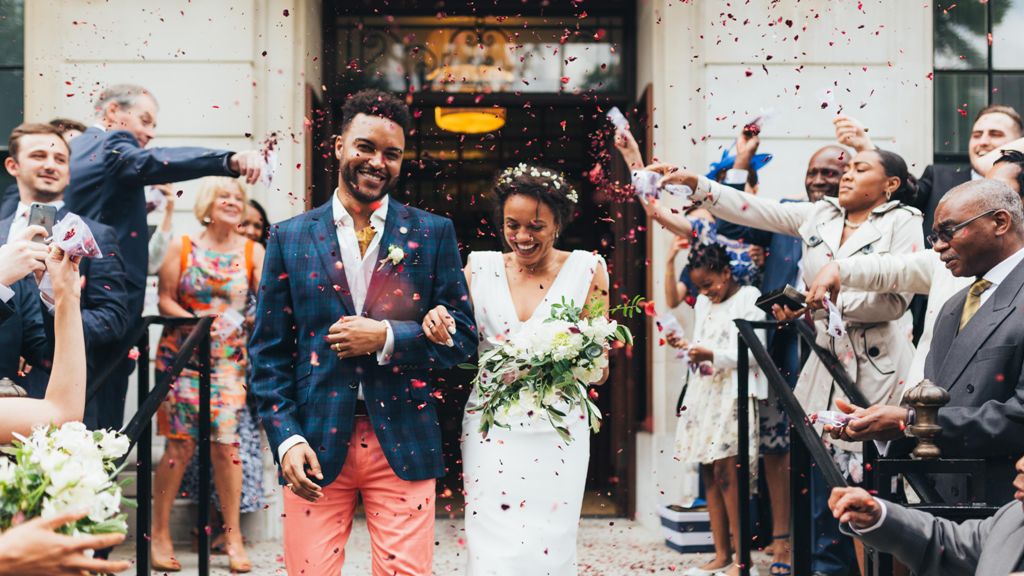
The Best Age to Get Married
Getting married straight out of high school or college was once the norm. Everyone was in a hurry to settle down and start a family. Now it feels like all your friends are in a hurry to get hitched before they turn thirty. Is there the ideal time and age to get married? Let’s find out!
Is There the Best Age to Get Married?
First, we need to get semantics out of the way. If by “best age” you mean the least chance of divorce, skip to the next section to find out the statistics. However, multiple other definitions come to mind. For instance,
- 15 is the perfect age to tie the knot if you live in some parts of the world and want to move up the social ladder.
- 22 is ideal if you’re going to move out of college dorms into an apartment shared with your spouse instead of returning to your childhood home.
- 30 is the norm for many women suffering under the peer-pressure, reminding them of the ticking biological clock and their “shelf lives” running out.
- 35 is the best age to get married for a man when he has a successful career and can support a growing family.
Another factor to consider is the difference between your biological age and maturity. Some people age before their time due to traumatic experiences early in life, making them mature sooner than their peers. Others enjoy a carefree life without many obstacles and stresses, often remaining childish and irresponsible past their 30s and 40s.

If financial stability is your priority, delaying the ceremony is statistically better for you. Female college graduates that marry after they turn thirty earn over $50,000 on average. Those women that marry before 20 and possess a college degree usually make a little over $30,000. The same applies to high school graduates, though the gap between salaries is a little smaller.
If psychological and emotional stability is among the factors you deem important, 25 is the age to wait for. This marker signifies the full development of the human brain and often coincides with life milestones. Additionally, waiting until 25 provides an opportunity to test your relationship, especially is it’s with your high school sweetheart. If it survives college, terms abroad, long-distance communication, and part-time jobs, getting married will be the logical next step.
If living your life without regrets is something you aspire to, pushing back the wedding date might be best for you. Many divorcees and unhappily married people, both male and female, name getting married too early among their main regrets. You need to experience everything life has to offer and discover the kind of person you are before twisting your life along with another’s. Getting experience with relationships, college, jobs, disappointment, and success are all vital to your satisfaction with life and marriage. For women, it might mean waiting until after they turn 35 before settling down, even though it might seem way too late in some cultures.
When to Get Married to Minimize the Risk of Divorce?
The unfortunate finale of Romeo and Juliet is the first thing that comes to mind when you think about teenage marriage, isn’t it? The common assumption is that the later you marry, the more stable your marriage will be, and the less risk of divorce you will encounter. However, a recent study by Nicholas Wolfinger revealed there is the “Goldilocks theory of marriage” that might surprise you.
According to the National Survey of Family Growth (NSFG), waiting until your mid-30s to tie the knot makes you more likely to get divorced than marrying in your late 20s. The numbers show:
- 38% risk of divorce for teenage marriages. This means that four out of ten couples that marry after high school get separated even is they get help from companies like writepaperfor.me.
- 27% chance of divorce for people getting married in their early 20s.
- 14% risk of divorce for couples tying the knot between the ages of 25 and 29.
- 10% chance of divorce for people getting married between the ages of 30 and 34. Only one in ten couples separate in this age group.
- 17% risk of divorce for marriages after the couple reaches the age of 35.
As you can see, there is a perfect age for getting married that minimizes the risk of divorce. However, the census only applies to couples separating within the first five years of marriage, so the data is far from complete. Still, the early years are the most volatile and critical for many couples, as they get used to living together, start a family, and adjust to their new roles as co-parents.
Waiting too late in life to settle down may increase the risk of divorce. According to Wolfinger, independent financial stability might be among the reasons people in their mid-30s are less successful in marriage. The shortening pool of eligible partners might be another reason behind the increasing divorce rates in this age group.

Surprisingly, the U.S. Census Bureau data proves that many people come to the same conclusion independently. The average age for getting married is 27.8 for women and 29.8 for men in the U.S. In Europe, more couples get married after hitting the big 30. For instance, the average age for getting married in Sweden is the highest among the EU states. It’s 35.8 for men and 33.3 for women. Moldova is on the other side of the spectrum, with 26 and 24 years old accordingly.
What Is Your Perfect Marriage Age?
You are the only one who can answer this question. The trouble is, none of us live in a bubble, free of outside influence. When all your friends fall prey to the wedding fever, it’s easy to follow in their footsteps and settle down with the person you are dating at the moment. The biological drive to procreate is also a significant factor, especially for those of us who come from religious or traditional families.
Ultimately, it all depends on you. Do not get married because of peer pressure. Wait for the right person who makes you better than you are on your own. Choose the time when you feel comfortable in your skin and with your social and career standing. Finally, you can always choose to avoid marriage and enjoy life with your partner without the paperwork and legal obligations between you.




